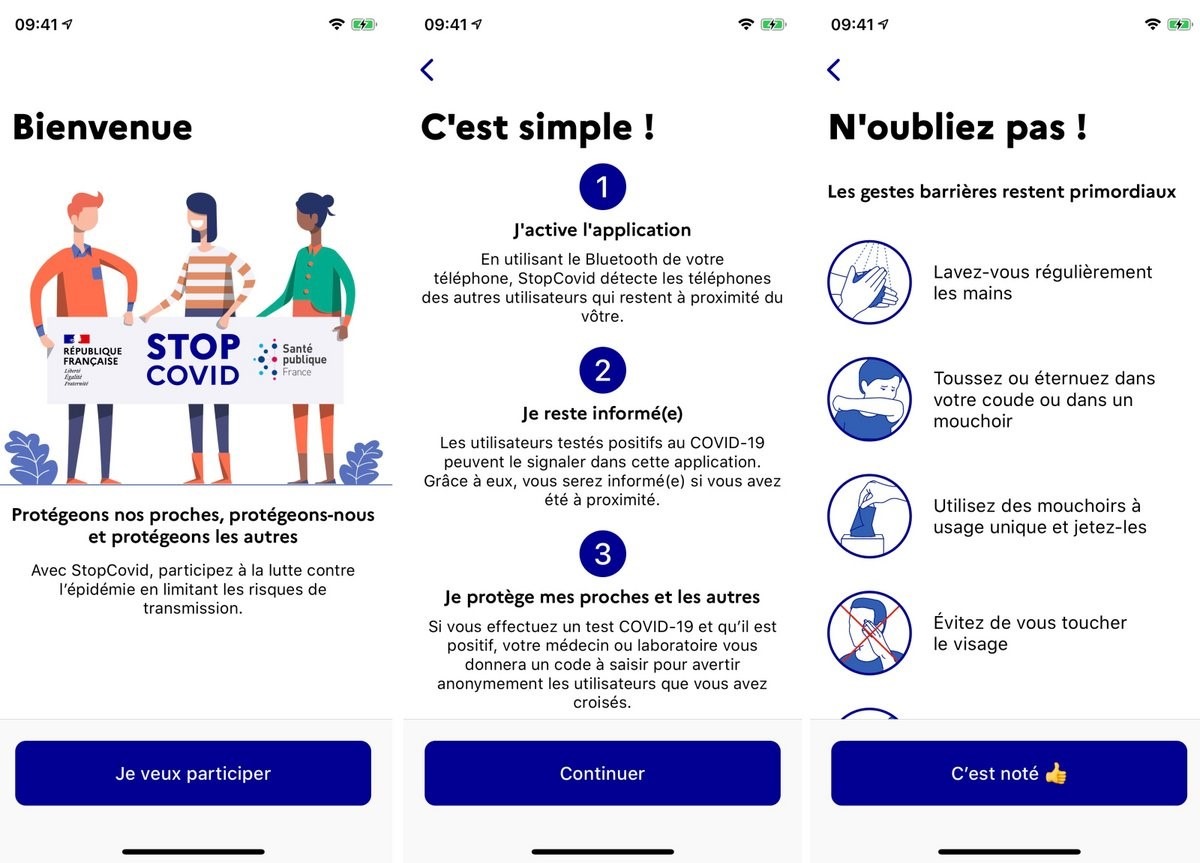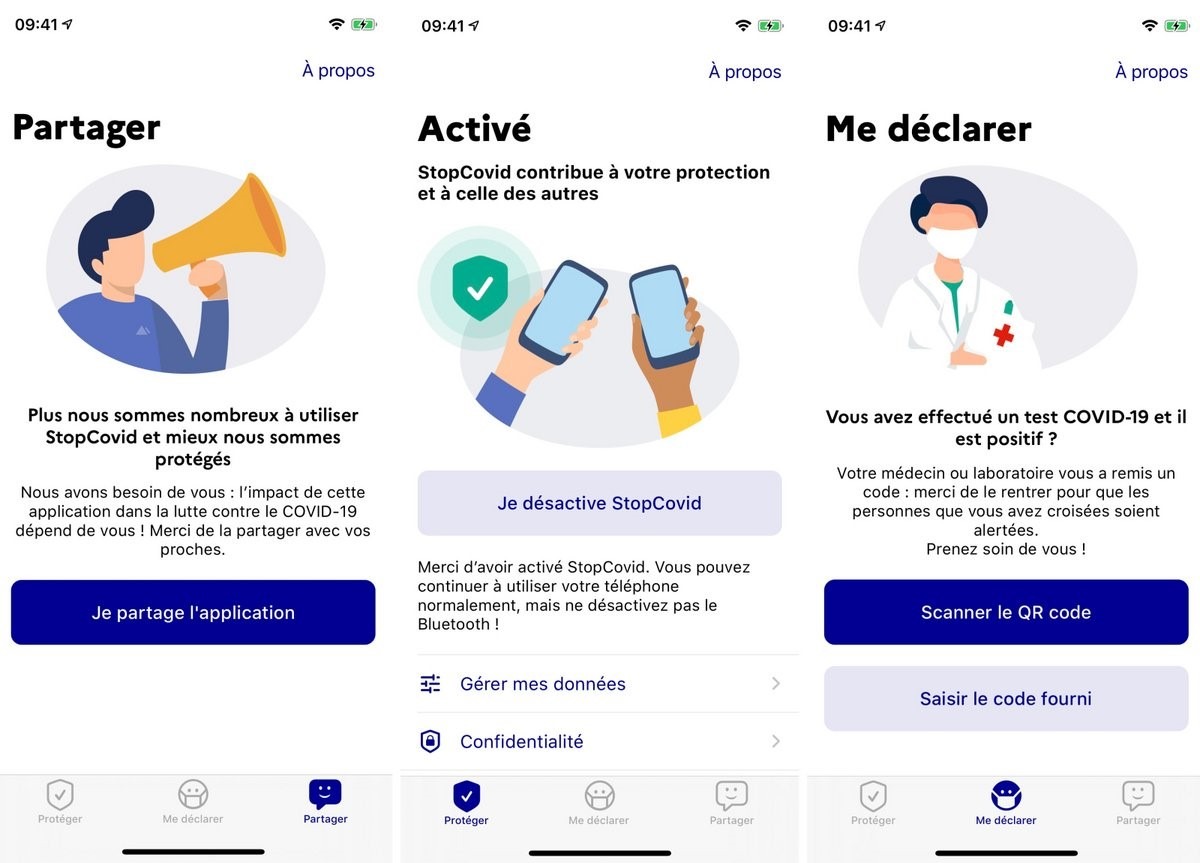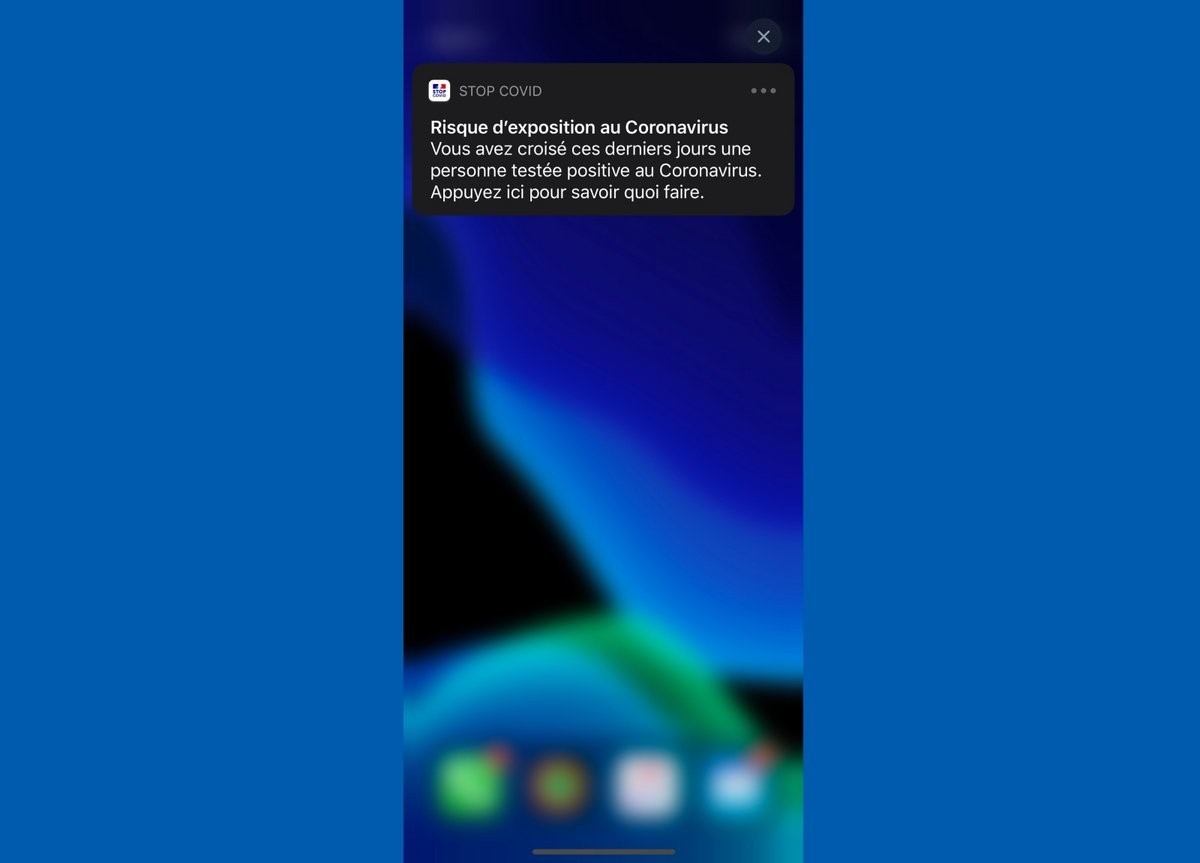Covid-19 and the “StopCovid” app
In the context of the COVID-19 pandemic, and more specifically the so-called “lockdown-lifting” strategy, the French Government decided to implement an app called “StopCovid” available on smartphones, the aim of which is to alert its users that they have been in close proximity to people who have been tested positive for COVID-19 and who use the same app, as this proximity entails a risk of transmission of the SARS-CoV-2 virus.
This is one of the digital devices implemented by the Government as part of this overall “lockdown-lifting” strategy.
Two files, i.e. “Contact Covid” and “SI-DEP”, have already been authorized by the Law extending the state of health emergency and a Decree dated May 12, 2020[1]. These files aim to ensure the screening, the conduct of health investigations and the care of people infected with the virus or likely to be infected.
In addition, the Government wished to make available to the population a mobile app to alert users on a risk of contamination when they have been in close proximity to another user who has been tested positive for COVID-19. This is a “contact tracing” device, the use of which is voluntary and based on Bluetooth technology.
It will be downloadable on IOS and Android from June 2, 2020.
In concrete terms, this app allows two nearby smartphones, on which it is installed, to exchange anonymous data via Bluetooth. If one of the two users declares that he/she is infected with COVID-19, all StopCovid app users with whom he/she has crossed paths will be notified and will have to consider themselves as possible contact cases.
It should be specified that for data (or crypto-identifiers) exchange to work, at least two smartphones – on which the StopCovid app is installed and running – must be within a distance of about one meter for at least 15 minutes.
Similarly, to be considered as a “contact case” of a person whom you have been close to and who subsequently turns out to be ill, this person must report this situation within two weeks of the initial contact.
Here are the first screenshots (in French):


And an overview (in French) of the notifications that all users will receive in the event that a person who has been in proximity for at least 15 minutes within a distance of one meter or less within the last 15 days before the diagnosis becomes ill:

As a reminder, the launch of the StopCovid app. puts an end to a series of different positions:
Position of the French Parliament
The members of the National Assembly and Senate examined on May 27, 2020 the draft decree governing the deployment of the app. Intensive discussions took place as this digital tool foster divisions between people.
After more than 4 hours of debates[2], the members of the National Assembly approved the Government’s declaration on digital innovations in the fight against the COVID-19 pandemic and the creation of the StopCovid app. Out of the 574 voters, 338 members voted in favor and 215 against.
The Senate then voted, with 186 senators in favor, 127 against and 29 abstaining.
Position of the French Data Protection Authority
After its opinion of April 24, 2020[3] on the principle of using such an app, the French Data Protection Authority (Commission Nationale de l’Informatique et des Libertés or “CNIL”) analyzed in its opinion of May 25, 2020[4] the practical terms and conditions governing its implementation.
The app will use pseudonymized data, without geolocation, and will not result in the creation of a file of infected persons. According to the CNIL, this temporary system, use on a voluntary basis, can legally be implemented.
While the CNIL considered that the app could be legally deployed insofar as it appeared to be an additional instrument to the human health investigation system and allowed for faster alerts in the event of a contact with an infected person, including unknown contacts, it also warned that the actual usefulness of the system will have to be more precisely assessed after its launch and that the duration of the system’s implementation will have to be conditional on the results of this assessment that must take place on a regular basis.
Position of the National Consultative Commission on Human Rights
The National Consultative Commission on Human Rights (Commission nationale consultative des droits de l’homme or “CNCDH”) reiterated its concerns about the implementation of the contact tracing StopCovid app[5]. Considering that compliance with the regulations on the protection of personal data (GDPR) is not sufficient to guarantee respect for all fundamental rights and freedoms, the CNCDH considered that the StopCovid app, the effectiveness of which is still uncertain, clearly entailed a disproportionate interference with the rights and freedoms of all citizens because of its terms and conditions of access and use.
Position of the French National Digital Council
Also asked to issue an opinion about the StopCovid app, the National Digital Council (Conseil national du numérique) gave a favorable opinion and issued some 15 recommendations[6].
Position of the Paris Bar
The Paris Bar Council has issued risk warnings concerning the potential infringement of fundamental rights and freedoms of any user of the StopCovid app[7].
Specifically, it has invited lawyers not to install this app and to limit the use of the Bluetooth function to only professional apps with satisfactory security levels, while recommending to be extremely vigilant about the use of this app on their personal smartphones.
[1] See our Article entitled Covid-19 and Contact Tracing published on our Blog on May 12, 2020
[2] http://videos.assemblee-nationale.fr/video.9101331_5ece6243ab068
[3] https://www.cnil.fr/en/publication-cnils-opinion-stopcovid-mobile-application-project
[4] https://www.cnil.fr/sites/default/files/atoms/files/deliberation-2020-056-25-mai-2020-avis-projet-decret-application-stopcovid.pdf
[5] https://www.cncdh.fr/fr/publications/la-cncdh-souligne-les-dangers-de-lapplication-stopcovid
[6] https://cnnumerique.fr/files/uploads/2020/2020.04.23_COVID19_CNNUM.pdf
[7] http://dl.avocatparis.org/com/mailing2020/18_conseil_27052020.html
 Strategic Lawyering
Strategic Lawyering